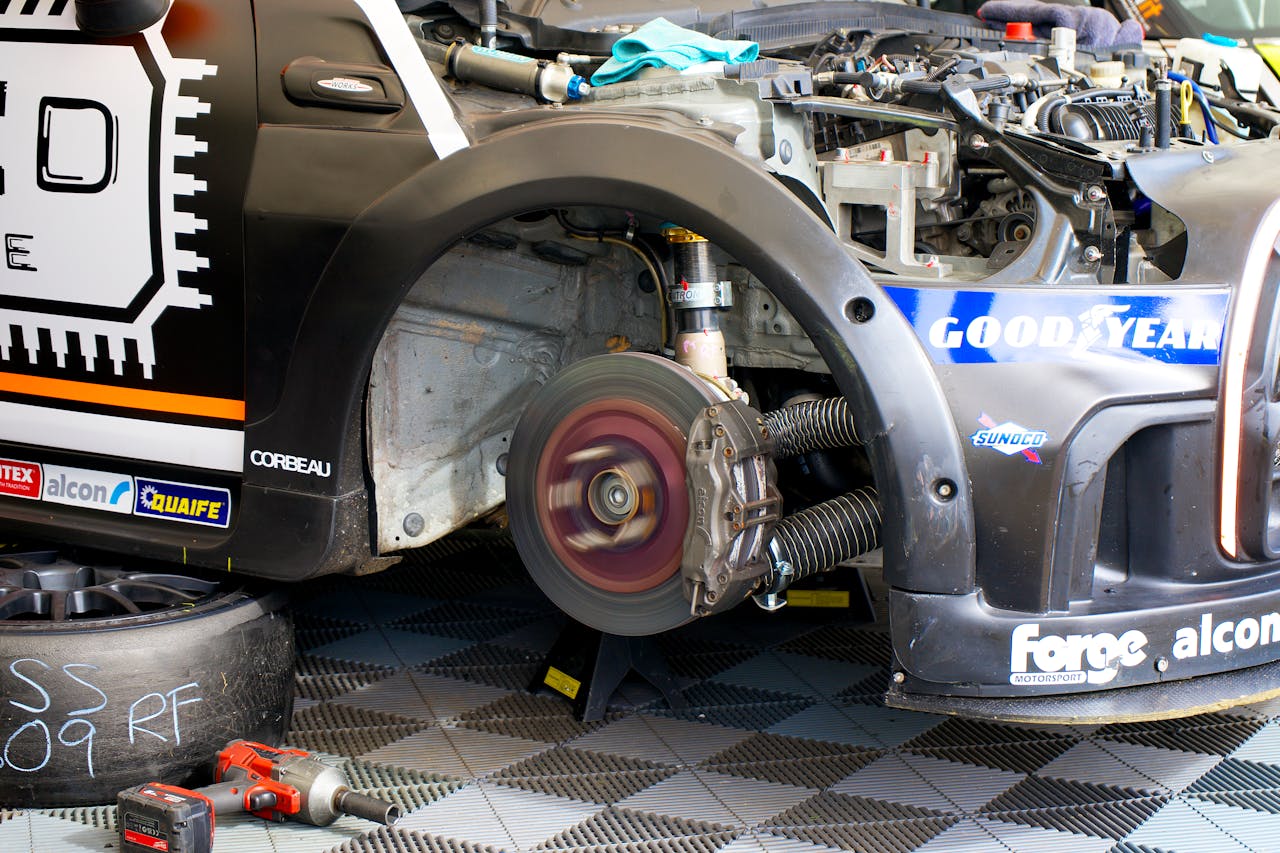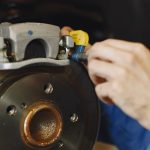Rusty brake discs can be a significant problem for car owners, causing various issues ranging from squeaky brakes to reduced braking efficiency and safety hazards. These problems often arise due to exposure to harsh weather conditions, neglect, or inferior quality materials. However, with the right approach, it’s possible to address these issues effectively. In this article, we’ll delve into the problems associated with corroded brake discs and provide practical solutions to revive them.
Problems Caused by Corroded Brake Discs
1. Squeaking or Grinding Noises
- One of the most common problems associated with corroded brake discs is the occurrence of squeaking or grinding noises when braking. This noise results from the friction between the rusted brake discs and the brake pads, which can be both annoying and alarming for drivers.
2. Reduced Braking Performance
- Corroded brake discs can lead to a significant reduction in braking performance. The presence of rust on the disc surface reduces the contact area between the brake pads and the disc, resulting in decreased friction and braking efficiency. As a result, drivers may experience longer stopping distances and increased risk of accidents.
3. Visible Signs of Rust
- Visual inspection of the brake discs may reveal signs of corrosion, such as discoloration, pitting, and surface irregularities. While minor surface rust may not immediately affect braking performance, severe corrosion can compromise the structural integrity of the brake discs and pose safety risks.
Solutions for Dealing with Corroded Brake Discs

1. Cleaning and Rust Removal
- The first step in dealing with corroded brake discs is to thoroughly clean and remove the rust buildup. This can be achieved using a brake cleaner to dissolve surface contaminants and a wire brush or sandpaper to scrub away stubborn rust spots. Be sure to wear protective gear, such as gloves and safety glasses, when performing this task.
2. Inspection and Evaluation
- After cleaning the brake discs, it’s essential to inspect them for any signs of damage or excessive wear. Pay close attention to the disc surface for deep pitting or grooves that may indicate severe corrosion. If the damage is extensive, it may be necessary to replace the brake discs to ensure safe braking performance.
3. Lubrication and Maintenance
- Proper lubrication of the brake components is crucial for maintaining smooth operation and preventing future corrosion. Apply a thin layer of high-temperature brake lubricant to the caliper slides, pads, and other moving parts to reduce friction and corrosion. Additionally, perform regular brake maintenance, including cleaning and inspection, to identify and address any issues promptly.
4. Rust Prevention
- To prevent future corrosion and prolong the lifespan of the brake discs, consider applying a rust-resistant coating or paint to the disc surface. These protective coatings create a barrier against moisture and contaminants, reducing the risk of rust formation and extending the service life of the brake discs.
5. Professional Inspection and Repair
- If you’re unsure about the condition of your brake discs or encounter any difficulties during the cleaning process, it’s advisable to seek professional inspection and repair services. A qualified mechanic can assess the extent of corrosion and recommend appropriate repairs or replacements to ensure optimal braking performance and safety.
Conclusion
Dealing with corroded brake discs requires proactive maintenance and attention to detail. By understanding the problems associated with rusted brake discs and implementing the solutions outlined in this article, car owners can restore braking performance and ensure safety on the road.
FAQs (Frequently Asked Questions)
1. How often should I clean my brake discs?
It’s recommended to inspect and clean your brake discs every 12,000 to 15,000 miles or whenever you notice signs of corrosion.
2. Can I use any type of brake cleaner?
It’s best to use a brake cleaner specifically designed for automotive applications to ensure compatibility with brake components.
3. Is it safe to drive with rusty brake discs?
While minor surface rust may not pose an immediate danger, it’s crucial to address corrosion promptly to prevent further damage to the braking system.
4. Can I prevent brake rotor corrosion altogether?
Regular maintenance, including cleaning, lubrication, and applying rust-resistant coatings, can help mitigate brake rotor corrosion.
5. Should I replace corroded brake discs?
If the corrosion has compromised the structural integrity of the brake discs or significantly affected braking performance, it’s advisable to replace them for optimal safety and performance.
Last Updated on March 14, 2024 by admin

Mac is an Automotive enthusiast. He owns up to 15 vehicles. He deals with Auto problems and shows his skill to Car owners who are seeking any type of Car help.





